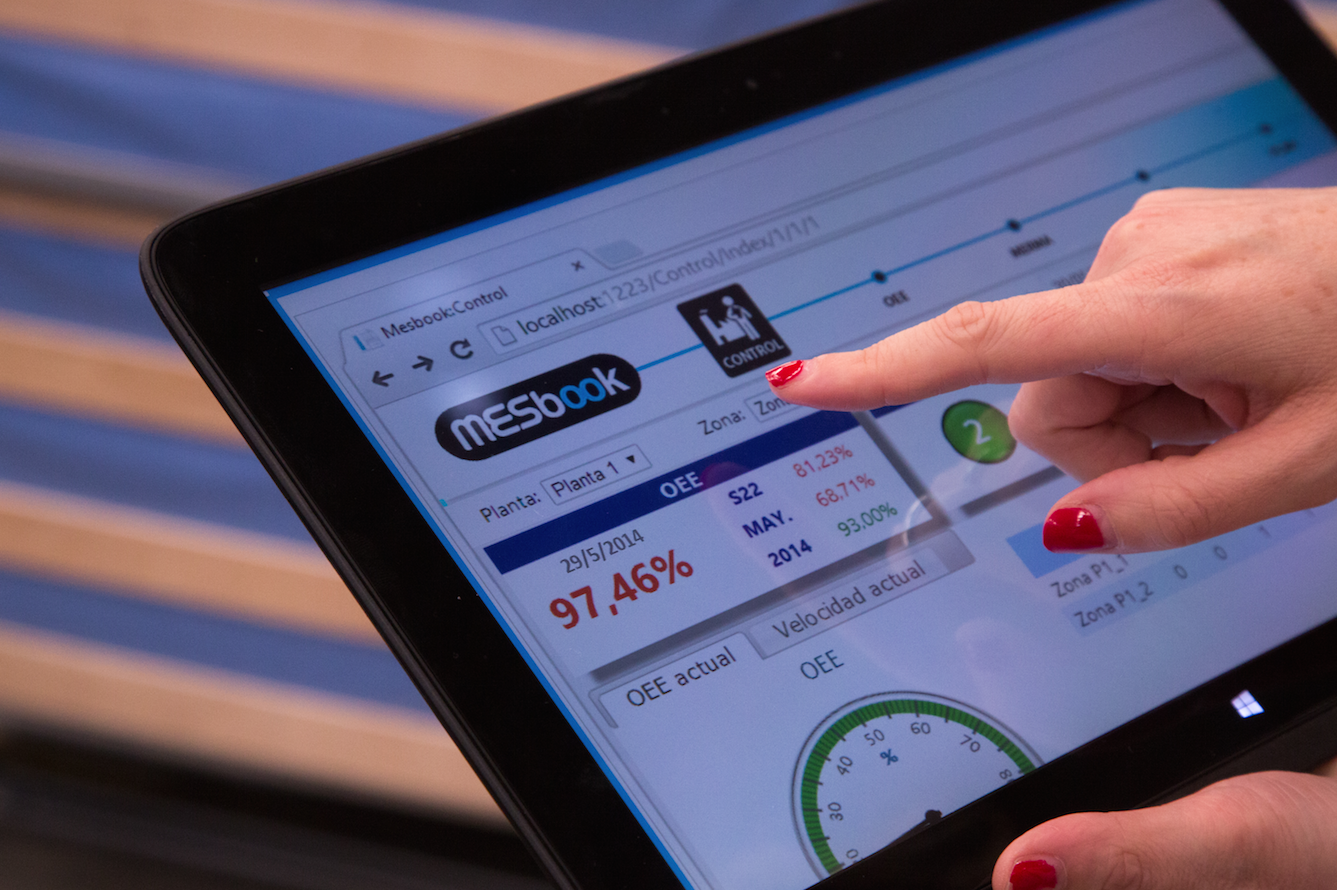
MESbook define themselves as specialists in factory management. It is not for nothing that two of the three founders - Diego Sáez de Eguílaz, Fernando Molinuevo and Pablo Rodríguez- have a professional career of more than 15 years at the head of industrial companies of all types: family firms, multinationals, multisectorial businesses... More than enough experience to detect those operative shortfalls causing a gap in the accounts. Their coming together led to a product that is already being used by different companies, such as the cosmetic firm Sesderma, the packaging group Hinojosa or Doña Jimena and Turrones el Lobo in the food sector.
The fact of having previously managed companies in this area means they have gone "from industry to technology, not the other way round;" something that gives them the capacity to create "innovation based on solving problems, not on ideas." According to Sáez, a 10-minute conversation is usually enough for a potential client to trust the product and open up the doors of the production plant so that they can identify its shortfalls.
A non-digital market
The partner and manager of MESbook insists that they sell "the only system that unifies all of a factory's dispersed information." "A plant is run in blocks that have their own independent organisation that an ERP then manages globally," he points out; "the problem is that part of this information is often lost." Through their platform, they connect the ERP, the machinery, the people, the raw materials and the products through the IoT to know in real time what is going on.
Sáez believes that a large part of the problem arises because "a lot of industry 4.0 and smart factories is marketing, while the reality of factories is much more pragmatic and basic." That is why the team is made up of 50% computer technicians and 50% engineers. "We develop a product learning about the problems and then the technicians give them shape and create a technological tool," he points out. Only that way can progress be made at the pace that the industry requires, because, as he says, "companies on a digital level are still at the crawling stage, you cannot yet ask them to start walking."

The creators de MESbook have experience in industrial management. Ceded
And to begin learning to walk you need to know what is happening in the production plant. The CEO says that between 60% and 80% of a company's sales are made in the production plant, on which he insists more emphasis must be placed: "There are direct raw material and workforce costs, but also indirect costs related to personnel, space or energy. And to that must be added marketing, commission, innovation or transport costs, that can amount to 25%. In the end, the profits can be laughable compared with the costs." This theory is what leads him to argue that the first thing to do is "to look at what is going on inside, use the technology to improve profit and then invest in what costs the most."
Although they have been asked to apply the tool to other sectors, such as trade, the team prefers to continue, for now, working in the field of industry that they know so well and which Sáez describes as "virgin on the level of digitalisation and where efficiency has never been a priority." From here their objective is to help the SME, which the manager considers "the middle class of factories."
More information in real time
Although the sectors of food, cosmetics and pharmaceutics, and packaging are where they have most of their clients, together there are 20 companies in 11 different spheres that manage their plants with MESbook. They are varied spheres, but what they have in common is an "absence of objective information for making decisions." According to the cofounder, people run factories on the fly and with their feelingsor based on messages they get at any one time, in other words, without the necessary information to make strategic or global decisions.
This is the argument they will present at the Advanced Factories fair where, from their position as "pioneers in Spain in industry 4.0", they will show industry the importance of having real-time and objective information to drive innovation in production plants and reduce costs. A first step is to bring machine learning to data prediction in order to make a leap forward in the day-to-day efficiency of a factory's work. And how to begin? With basic things like "introducing tablets on production lines to find out what is happening," he says by way of example.
Participating in this event is also a step forward in Catalonia, a market they want to launch in soon. They already operate in Valencia, Madrid, Andalusia and Murcia, and they have an initial international project in Portugal. Although their growth has been good, Sáez makes it clear that they prefer to move ahead slowly and surely.
They ended 2016 with a turnover of 200,000 euros, a figure that will no doubt rise given that each new client means revenue of 20,000 euros.